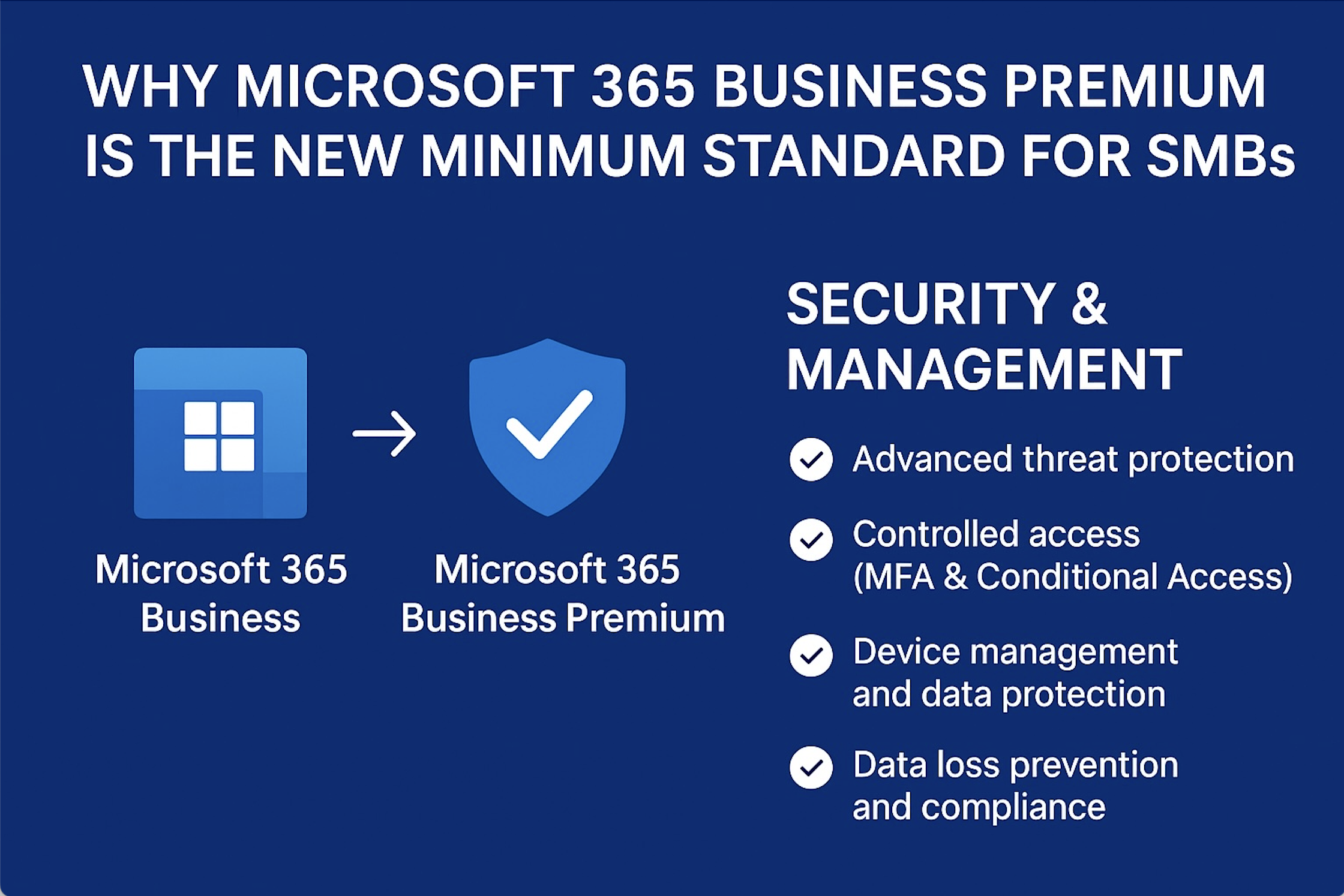Knowledge & News
Why Manufacturing Companies Can’t Afford Outdated IT
Introduction
Manufacturing businesses today are heavily reliant on technology to remain competitive, enhance production efficiency, streamline supply chains, and ensure regulatory compliance. As industries progress, the demand for cutting-edge IT systems continues to grow. However, many manufacturers still operate on outdated IT systems that not only increase the likelihood of production downtime but also slow down overall productivity and expose the company to potential security breaches. In an environment where efficiency and security are paramount, relying on legacy IT systems can have serious repercussions.
Key IT Challenges in Manufacturing
- Downtime Costs Thousands Per Hour
The cost of downtime in a manufacturing plant is astronomical. For every minute that production is halted due to IT system failures, companies lose not just in terms of operational costs but also potential revenue. For instance, if an assembly line stops for just an hour, the loss in terms of production could reach tens of thousands of pounds depending on the scale of operations. IT failures, particularly those related to legacy systems, cause delays in workflows, disruptions to automated systems, and delays in supply chain management. The longer these systems are down, the more expensive it becomes for the company to recover, which can also affect relationships with clients and suppliers. - Legacy Systems Are a Cybersecurity Risk
Legacy IT systems, including older industrial control systems (ICS), are particularly vulnerable to cyber-attacks. These systems often lack the necessary security features found in modern IT infrastructure. As manufacturers continue to use outdated software, they open themselves up to potential vulnerabilities, allowing hackers to exploit these weaknesses. Cyber-attacks can lead to theft of sensitive data, disruption of production, or even tampering with critical processes that could compromise safety. In the age of increasing cyber threats, it is no longer sufficient for manufacturing companies to rely on outdated technology that cannot be effectively protected. - Slow Systems Reduce Efficiency
Legacy IT infrastructure often includes outdated hardware and software that cannot support the high-speed demands of modern manufacturing processes. In today’s fast-paced industry, where real-time data analysis and seamless automation are essential, slow systems hinder productivity. Automated workflows, supply chain tracking, and production monitoring rely on fast and reliable systems, and outdated technology can severely limit a company’s ability to scale. Whether it’s slow data transmission or the inability to process large amounts of real-time data, old IT systems can cause delays in production and negatively impact a company’s ability to respond quickly to market demands.
How MSPs Help Manufacturing Businesses
Managed Service Providers (MSPs) can offer manufacturing companies the tools and expertise needed to overcome these IT challenges. With the ever-increasing reliance on technology, it’s essential for manufacturers to adopt modern IT solutions that ensure smooth operations, security, and growth.
- Proactive IT Maintenance
A major benefit of working with an MSP is proactive IT maintenance. Instead of reacting to IT issues after they occur, MSPs monitor systems 24/7 and identify potential problems before they lead to costly downtime. By conducting regular updates, patches, and system checks, an MSP ensures that the IT infrastructure remains up-to-date and that any vulnerabilities are addressed swiftly. This reduces the likelihood of unexpected IT failures, helping manufacturing businesses avoid costly disruptions.
- Secure Industrial Networks
Security is a top priority for manufacturers, especially those that rely on ICS systems to control and monitor critical processes. MSPs specialise in securing industrial networks by implementing the latest security protocols, firewalls, and intrusion detection systems. By using advanced cybersecurity solutions, an MSP helps manufacturers protect themselves against a wide range of cyber threats, from ransomware to data breaches. Additionally, MSPs stay ahead of evolving threats, ensuring that manufacturers remain compliant with industry regulations and standards.
- Cloud-Based Manufacturing Tools
Modern cloud technologies allow manufacturers to store and access large volumes of data remotely, enabling real-time monitoring and reporting. With cloud-based solutions, production teams can access up-to-date information from any location, facilitating faster decision-making and improving overall efficiency. Cloud tools can help manufacturers track inventory, monitor production lines, and respond to supply chain disruptions quickly. Furthermore, these tools can integrate seamlessly with other business systems, providing manufacturers with a unified platform to manage operations more effectively.
Scenario: The Impact of Outdated IT on a Manufacturing Company
Consider a mid-sized manufacturer of electronic components, operating in a competitive market. The company still relies on legacy IT systems, including older factory automation software and outdated networking infrastructure. One day, a software glitch in the production control system causes a halt in the assembly line, leaving workers idle and disrupting scheduled orders. The technical team scrambles to fix the issue, but because the system is outdated, the repair takes longer than expected.
Meanwhile, a client calls to ask for an urgent order, and because the company cannot provide real-time updates on the current production status due to their outdated systems, they lose the client’s business. The IT failure also causes a delay in receiving vital parts from their suppliers, further compounding the problem. In total, the downtime costs the company thousands in lost revenue, reputational damage, and increased operating costs.
If this manufacturer had worked with an MSP, the outcome might have been different. Proactive monitoring and regular system updates could have prevented the IT glitch in the first place. Moreover, a modern, secure IT infrastructure would have allowed for better communication with suppliers and clients, helping the business to recover more quickly and avoid unnecessary downtime.
In this case, the lack of updated IT not only resulted in immediate financial losses but also jeopardise the company’s long-term growth by harming relationships with clients and suppliers. A strategic partnership with an MSP would have ensured the company was equipped with the right IT solutions to stay competitive, secure, and efficient in a rapidly evolving industry.
Conclusion
Manufacturers cannot afford to ignore the impact of outdated IT on their operations. The cost of downtime, security risks, and inefficiencies in production are too great for companies to remain reliant on legacy systems. Working with an MSP allows manufacturers to access cutting-edge IT solutions that enhance productivity, safeguard operations, and future-proof their businesses against evolving challenges. Modernising IT infrastructure is not just an investment in technology, it’s an investment in the continued success and growth of the business.
-
 01.12.2025
01.12.2025
Veeam Immutable Backups with HPE Apollo & Alletra Storage | Wemtech Managed Services
-
 10.11.2025
10.11.2025
Layered Security: Microsoft Defender + Huntress for SMBs
-
 10.11.2025
10.11.2025
Why Microsoft 365 Business Premium Is the New Minimum Standard for SMBs
-
 03.03.2025
03.03.2025
How We’ve Sustained Long-Term Customer Relationships at Wemtech
Get in Touch


